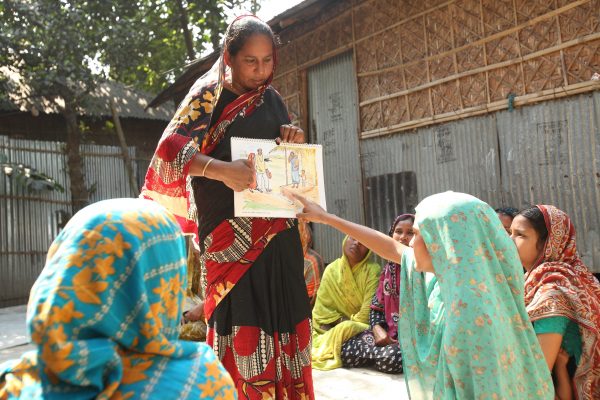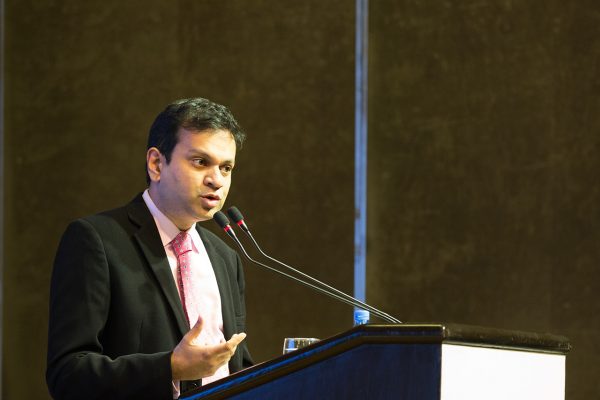Reading Time: 2 minutes
Without basic legal empowerment, the poor live an uncertain existence, in fear of deprivation, displacement and dispossession
A new paper from the World Bank examines BRAC’s human rights and legal services (HRLS) program, making a case for the link between justice and poverty.
Many say that legal empowerment of the poor is one of the strongest leverage points in against global poverty. BRAC’s experience puts women at the center of these efforts, earning it recognition such as the World Justice Project Rule of Law Award, given in The Hague last year.
According to the synopsis of the World Bank’s case study on HRLS:
This piece examines the current status of justice and dispute resolution mechanisms in Bangladesh, ranging from the formal justice system to the traditional shalish (a form of dispute resolution), and focuses on the costs and benefits of utilizing nongovernmental organization (NGO)-led legal services programs as an alternative form of justice delivery and dispute resolution for the poor, with a focus on women and girls.
In Bangladesh, about about 6,000 “barefoot lawyers” trained by BRAC act as one-woman mobile legal services clinics for the poor. We’re now experimenting with similar legal services programs in different contexts, including Sierra Leone.
The case study tells the story of a woman named Ferdousy, who is 19 and already divorced. She was pushed into marriage at the age of 13, yet within three years her husband abandoned her.
Due to Bangladesh’s patriarchal customs and entrenched poverty, it seemed Ferdousy had little hope of moving on to lead a productive and fulfilling life following the divorce. There was nobody in a position of power that could help her.
Yet through one of BRAC’s barefoot lawyers, Ferdousy was able to get help through alternative dispute resolution that included a settlement from her ex-husband.
In Bangladesh, programs like these offer a fairer alternative to something known as shalish – a traditional, informal process of resolving disputes within the community with the help of influential local elites.
The influence of local elites often makes the process incredibly unfair, as village leaders are easily persuaded to issue pronouncements in favor of wealthy supporters. Tradition also tends to stack the odds against women.
Though enormous improvements have been made in gender parity in Bangladesh, with more girls than boys in primary school today, the norms of traditional Bangaldeshi culture still tend to give women a raw deal, especially in rural areas.
BRAC’s HRLS program, along with other nonprofit legal aid programs in the developing world, offers one way to redress this imbalance.
Without basic legal empowerment, the poor live an uncertain existence, in fear of deprivation, displacement and dispossession, writes BRAC’s chairperson and founder, Sir Fazle Hasan Abed, in “Rule of law can rid the world of poverty,”an article co-authored with philanthropist George Soros in the Financial Times in 2012.
“A legally empowered citizenry is both the guarantor and lifeblood of democracy,” Abed and Soros write. “Poverty will only be defeated when the law works for everyone.”
Read the summary or download the World Bank’s full case study (PDF).
WATCH: The story of Rupa, one of BRAC’s barefoot lawyers.






